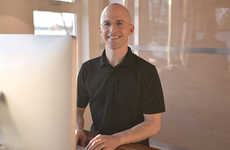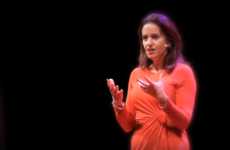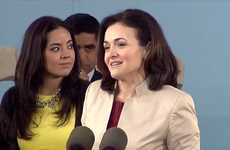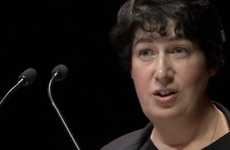
Need Inspiration?
Get inspired by 4,000+ keynote speaker videos & our founder, a top keynote speaker on innovation.
Deborah Lipstadt's Speech on the Holocaust Exposes Revisionists
Mishal Omar — May 8, 2017 — Keynote Trends
References: en.wikipedia.org & youtube
In her speech on the Holocaust, Deborah Lipstadt speaks about how she was asked to study individuals, groups and so-called "historians" who deny that the Holocaust happened, or the severity of it.
The American historian talks about what she learned in her studies, that Holocaust deniers are wolves in sheep's clothing. They may not look like Nazis, they may not have their stereotypical outward characteristics, but at their core their racism and antisemitism remains the same. They parade their historical revisionism as rational discourse, in order for them to be able to enter into the public conversation under the guise of freedom of expression, opinion and thought. She revises the well-known statement of "there are facts and there are opinions," adding that "there are facts, there are opinions, and there are lies." Holocaust deniers find a way to take their lies, present them as opinions, and then leave them open to debate as facts.
Lipstadt ends her speech by emphasizing the parallels that can be seen when comparing Neo-Nazis with the newly branded "alt-right." The alt-right may not dress up like the KKK, but it too is extremism parading as rational discourse, with the same nationalist, racist and antisemitic opinions found at its core. She ends her speech by emphasizing that truth is not relative, and to not forget that objective facts exist – and that fighting the growing notion that they do not should be a focus for academia, the media and people at large.
The American historian talks about what she learned in her studies, that Holocaust deniers are wolves in sheep's clothing. They may not look like Nazis, they may not have their stereotypical outward characteristics, but at their core their racism and antisemitism remains the same. They parade their historical revisionism as rational discourse, in order for them to be able to enter into the public conversation under the guise of freedom of expression, opinion and thought. She revises the well-known statement of "there are facts and there are opinions," adding that "there are facts, there are opinions, and there are lies." Holocaust deniers find a way to take their lies, present them as opinions, and then leave them open to debate as facts.
Lipstadt ends her speech by emphasizing the parallels that can be seen when comparing Neo-Nazis with the newly branded "alt-right." The alt-right may not dress up like the KKK, but it too is extremism parading as rational discourse, with the same nationalist, racist and antisemitic opinions found at its core. She ends her speech by emphasizing that truth is not relative, and to not forget that objective facts exist – and that fighting the growing notion that they do not should be a focus for academia, the media and people at large.
2.1
Score
Popularity
Activity
Freshness
















